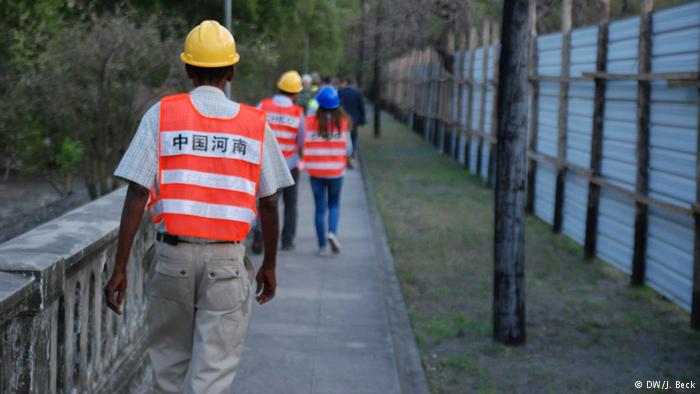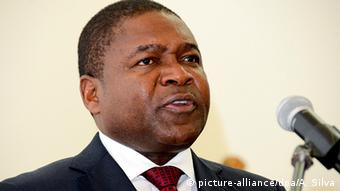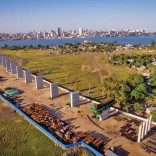Seminar: Leadership Lessons from Nelson Mandela; Maputo, June 04th and 05th 2019 – Press Release
Chinese financing in Mozambique: the other side of the coin

DW / Workers of Chinese construction company CHICCO in Beira, capital of Sofala central province
Mozambican entrepreneurs are excluded from Chinese-financed public projects, hindering economic development, economist Eduardo Sengo argues, adding that it is time for Maputo to raise the matter with Beijing.
The China-Africa Summit in 2005 was a landmark in relations between the two countries, and facilitated a substantial increase in public investment. Thousands of millions of dollars have since been made available to Mozambique and applied in several areas.
“China’s loans are chiefly not commercial, they are mainly concessionary or moderately commercial. In general, they are affordable. The funding has helped us to improve the infrastructure deficit. They were a milestone,” Sengo says.
Ministries, research and education centres, roads and bridges are just some of the visible examples. But in road construction, for example, Chinese vehicles and workers also arrive. It is said that even the nails used come from China.

Tied aid keeping out local business people
Financing like this, where most of the loan doesn’t even leave the donor country, does little for the development of Mozambican industry and business. Sengo believes that “What has happened is that the infrastructure itself benefits existing businesses, but in terms of what we call local content in projects, participation has been minimal”.
However, this trend is not only a Chinese phenomenon. The same applies to the US, the economist notes, although it is “not as blatant”.
Mozambican analyst and journalist Ericino Salema has also spotted this trend. “This has to do with what you call tied aid. If the funds are Chinese, Japanese or Portuguese, it has to be a company from the donor country that gets the work. In this regard I think that it is best explained by what is called the development industry,” he explains.

Mozambican government must negotiate with Beijing
With the economy in crisis and the business community in dire need of empowerment, what will be the consequences of Mozambican industry continuing to be excluded?
Replies Sengo: “I think China’s aid cannot continue in the same way, because it will not empower local entrepreneurs. On the contrary; it will increase the balance of payments deficit.”
The economist cites some obvious solutions. “We can implement projects in areas where we can reduce the problem that exists today – paying for imports. A project that increases imports will not help at all, because it will exacerbate exchange rate pressure. But an agro-processing project, for example, can help solve this exchange rate pressure by increase the indigenization of the economy.”

Is Filipe Nyusi seeking financial support in China?
Mozambique is experiencing an unprecedented financial crisis due to undisclosed government borrowing valued at about US$1.4 trillion. Traditional donor countries in the West have begun to reduce disbursements or freeze aid just as President Nyusi begins a visit to China.
Sengo recalls that the visit has been planned since the beginning of this year, and acknowledges that China could be a part of the solution. “Given the current situation, I suppose one can not overlook the opportunity to secure other financing, given the urgent need that the country has of financial resources to continue to grow, and continue projects that may otherwise be cancelled.”
At the 2105 China-Africa Cooperation Forum in South Africa, China announced the availability of US$60 billion in assistance and loans to African countries. This includes five billion in interest-free loans and US$35 billion in concessionary loans and preferential export credit.











Leave a Reply
Be the First to Comment!
You must be logged in to post a comment.
You must be logged in to post a comment.